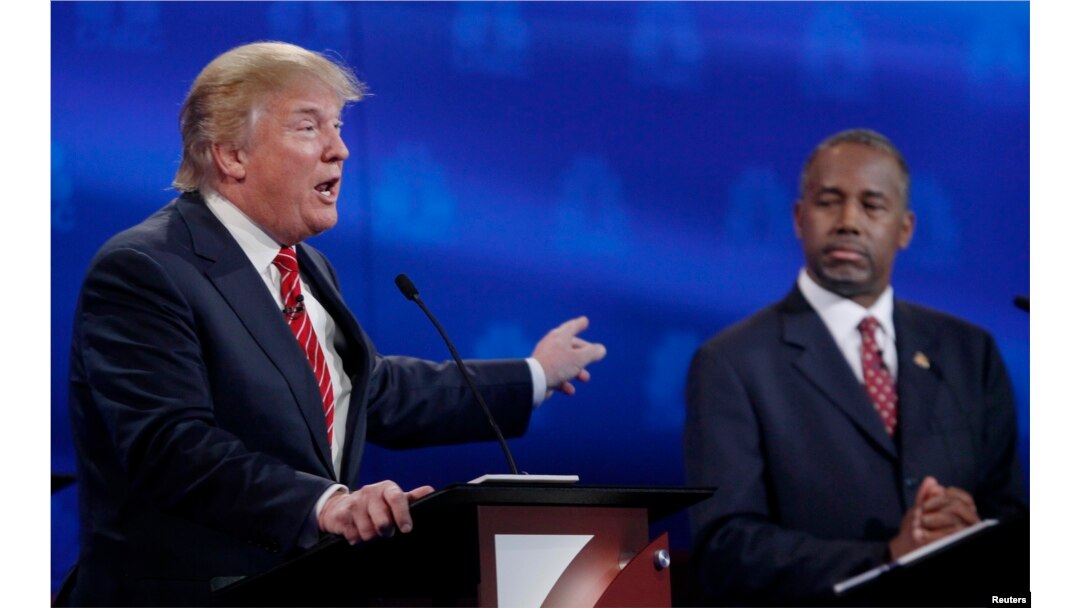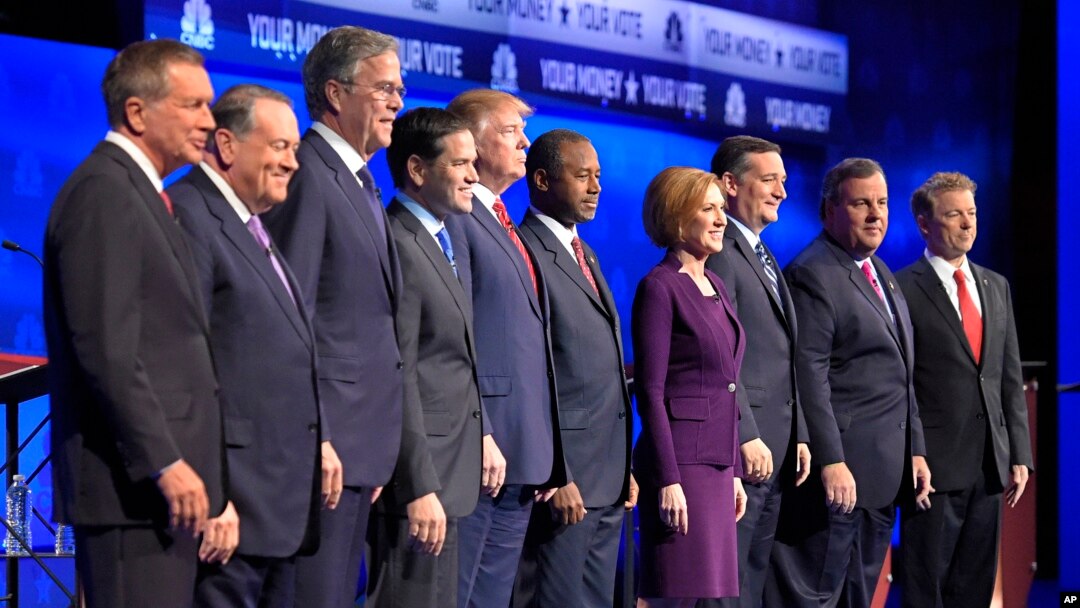Experts and fact-checkers watching the latest Republican debate say candidates for the presidential nomination said some things that were true, others that were misleading, and some that were utterly false.
New Jersey Governor Chris Christie said Democratic candidate Bernie Sanders has a plan to raise "your taxes to 90 percent" to pay for expanding government programs.
The Washington Post reports that Sanders' probably would raise taxes if elected, but not nearly that much. The paper rated Christie's claim "false" and Politifact.com called it "pants-on-fire."
Fact-checkers at the Committee for a Responsible Federal Budget said Christie's claim that Social Security would be insolvent in seven or eight years "largely false."

From left, U.S. presidential candidates Senator Ted Cruz, Governor Chris Christie and Representative Rand Paul participate in the 2016 Republican presidential candidates debate held by CNBC in Boulder, Colo., Oct. 28, 2015.
CFRB calls itself a nonpartisan think tank that examines financial, political and economic issues.
Social Security is the government program that collects taxes from current workers to pay benefits to older Americans.
Experts say Social Security faces a funding short-fall, with government estimates saying the fund will be unable to pay full benefits in 15 or 20 years unless the system is reformed.
'Total propaganda'
Retired neurosurgeon Ben Carson, who has been gaining support in public opinion polls, said claims he had links to a much-criticized nutritional supplement company were "total propaganda."
Mannatech has paid $7 million in fines for deceptive practices such as claiming their products could help cure serious diseases.

U.S. presidential candidate and businessman Donald Trump, left, speaks as Ben Carson, a retired neurosurgeon, listens at the 2016 U.S. Republican presidential candidates debate held by CNBC in Boulder, Colo., Oct. 28, 2015.
Politifact rated his comment "false," saying he gave paid speeches and appeared in promotional videos related to the product.
Florida Senator Marco Rubio has been facing criticism for missing many votes in Washington while he travels the nation campaigning for president.
Rubio said other senators who missed votes while running for the White House, including the current occupant, President Barack Obama, did not get similar criticism.
Politifact rated his statement "True."
Noted on website
Real estate developer and reality television star Donald Trump denied that he had criticized Rubio regarding a visa program intended to bring more workers with high-tech skills into the United States.
But fact-checkers pointed out that material on Trump's own website appears to criticize Rubio and others.
Ted Cruz, right, makes a point as Carly Fiorina looks on during the CNBC Republican presidential debate at the University of Colorado, in Boulder, Colo., Oct. 28, 2015.
Former business executive Carly Fiorina said American women lost jobs during Obama's first term.
Fact-checkers said that was true early in the term, but looking at the entire four years, both men and women gained jobs as the economy recovered from the worst recession in decades.
Concerns about the accuracy, context, and truth of statements by candidates from the major U.S. political parties have spawned a form of journalism called "fact-checking" by major newspapers and some nonprofit groups.
Fact-checking duties
Journalists and other staff members look up statistics, question experts and try to determine which statements are correct and which are not.
In some cases, these organizations make their point with humor, calling statements they view as outrageous "Pinocchios" or labeling them "pants-on-fire."
Pinocchio was a character in a children's book whose nose grew dramatically every time he told a lie. The other reference is to a children's rhyme "liar, liar, pants on fire."


